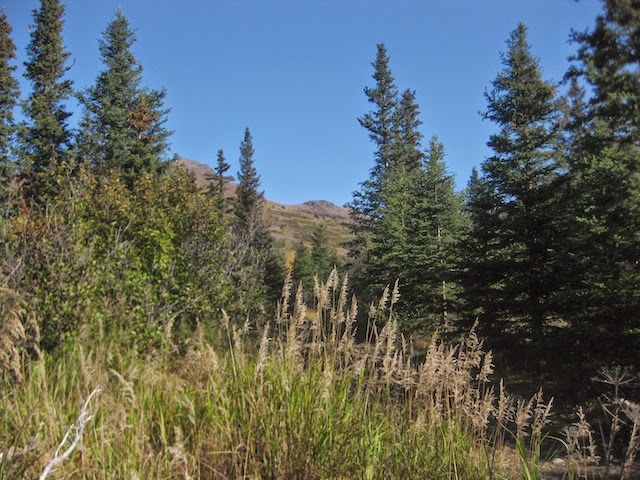- "My vote doesn't make a difference"
- "The politicians are all corrupt"
- "The cut in oil taxes will produce more revenue"
- "Don't interrupt, I'm in the middle of the game."
Alaskans have been wallowing in oil money since a decade or so after oil was discovered in Prudhoe Bay in 1968. Our population two years later - from the 1970 census - was 302,853. The 2010 census put us at 710,231.
That means that over half our population came after the oil boom began and doesn't know the times when Alaska had an income tax, tight budgets, and no Permanent Fund (whose $1884 dividend checks this year are making their way to every Alaskan as I write.)
But the oil revenues are going down and our spending is going up. Despite the rhetoric of our so-called fiscally conservative Republican dominated legislature and governor, they've passed the biggest budget deficits in Alaska's history.
We have serious issues to face, such as:
- What is the range of potential future state oil revenues?
- What have been the drivers behind the increases in the state budget over the past decade, what upward pressures are likely in the future and what are the constraints to cutting state spending?
- How might big-ticket capital projects like the proposed large-diameter natural gas pipeline/LNG export project, the Susitna-Watana hydroelectric project and the Knik Arm Crossing affect future state spending and revenues?
- How much revenue could Alaska raise from new taxes, and what are the pros and cons of different taxes?
- What is the Permanent Fund for? How are our uses of Permanent Fund earnings including dividends related to our other fiscal choices?
- What would a sustainable fiscal system look like, and how could we get to it?
These issues will be discussed Saturday, October 4, 2014 at Loussac Library from 9am-5:30pm in a public forum hosted by
Alaska Common Ground, a non-profit whose mission is:
To cultivate Alaska’s common ground for “government of the people, by the people, for the people” by engaging diverse citizens in active pursuit of informed mutual understanding and agreement on vital issues of public concern.and UAA's Institute for Social and Economic Research (ISER) - the foremost social science research unit dedicated to studying current issues in Alaska.
My guess is that between 100 and 200 people will attend. The crowd will be predominantly white, over 50 years old, and already politically active.
Where will the other 224,000 registered Anchorage voters be? They'll have plenty of excuses because they don't want to think about this stuff. This is grown up stuff and Alaskans like playing with their toys - their guns, their snow machines, their video games, their fancy running shoes and $2000 bicycles. Hey, life is good, don't disturb me.
The LA Times had an article Sunday about a 67 year old retired school teacher whose annual income from her pension and investments is $58,000, but she has been spending at a rate that puts her in jeopardy of being homeless in seven years. The article discusses her shock after having her budget examined by a financial adviser.
Alaska is that school teacher - we've had money to burn for the last 40 years and we've gotten accustomed to doing just that. We aren't poor and we could easily live within our means, if we have a heart to heart with a good financial planner and follow the prescribed path.
But we're so busy coming up with ways to spend that money - with lobbyists in Juneau concocting all sorts of bridge and dam projects to get state money spent on mega-projects that will benefit their construction company clients - that we aren't seriously looking at what we're going to do when all the reserve funds run out and we find that our schools are lacking and our state - like the school teacher - can no longer pay the rent.
Unlike the teacher who can make all the decisions necessary to secure her future on her own and who will have to live with the consequences, Alaskans have to get together and talk this stuff through. And just as many Alaskans came here for the jobs oil wealth made possible, many will leave when those goodies are gone.
We have an opportunity to be grown-ups and make the hard decisions we need to make. But I bet fewer than 200 will take the time to start facing the future on Saturday.
And Alaska Common Ground, whose members I admire and who have good hearts, is going to have to figure out new ways to reach out to Alaskans. An all day face-to-face forum is a great way to learn. But that won't make a dent unless they have a plan of mobilization for after the forum.
They need to start involving more than the same old people. Common Ground needs to get young folks to help plan how to use social media and popular culture to reach the people whose future will be most affected.
We need to develop a Grand Theft Alaska game to teach Alaskans how to save the oil wealth for future generations of Alaskans.

















